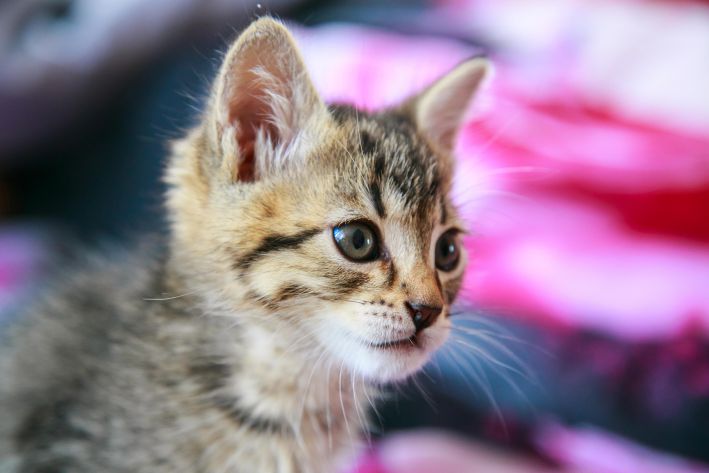When a cat refuses to use the litter box, it can cause anxiety and confusion for owners.
Understanding the reasons for this behavior is the key to solving the problem.
Here are some of the most common reasons why a cat may avoid the litter box.

Dirty tray
Cats like cleanliness, so they may avoid a dirty litter box and go elsewhere.
Even if the litter box is cleaned, it may still have an unpleasant odor that your cat may not like.
Be sure to clean the litter box at least once a day, preferably more often if possible, and wash it at least once a week.
Location
Cats may avoid using the litter box if they don't like the location where it is located.
Most cats enjoy doing their business in peace and quiet.
They will not want to use the litter box if it is in a place where people often go. It is best to place the litter box in a quiet place and inaccessible to strangers.
Some cats don't like the feeling of being trapped, so they may avoid using litter boxes with lids or high sides.
They want to be able to see what's going on around them, especially if there are other pets in the house.
Cats also don't like the litter box to be near their food and water, so place it in another room or on the opposite side.
Filler type and texture
Some cats prefer a certain type of litter, so the size, texture, and even smell are important to them.
Changing it suddenly can lead to the cat stopping using the litter box because it doesn't like the new one.
Cats with very sensitive paws may be especially sensitive to cat litter. They may not like litter with an abrasive texture.
Health problems
There are several reasons why cats don't use their litter box, including pain and stiffness due to arthritis or an injury that prevents them from getting into the litter box. For others, it may be because they have a urinary tract infection or diarrhea, which makes the need for grooming so urgent that they don't have time to get to the toilet.
Some cats may associate a past negative experience, such as painful bowel movements or the pain of a urinary stone, with using a litter box, preferring to eliminate elsewhere to avoid these feelings.
Some older cats may develop cognitive dysfunction as they age, which can change their litter box habits. They may either forget where the litter box is or not understand how to use it.
Contact your veterinarian if your cat's litter box usage suddenly changes or if you notice any other signs, such as refusing to eat, urinating frequently in small amounts, or meowing when your cat tries to eliminate.
Stress and anxiety
Cats do not like change and can be very sensitive to disturbance. When they are anxious, they may not use the litter box, especially if they spend most of their time hiding.
Any change, from a new pet to a change in schedule, can lead to problems with litter box use.
The cat may also become suddenly anxious due to a loud noise or similar cause. This may cause the cat to hide and not use the litter box for several hours.
Sticking to a schedule and providing your cat with a safe place to sleep will help reduce stress and anxiety.
Cats that are particularly anxious or stressed by every small change may need to be examined by a veterinarian.
Not enough trays
If you have more than one cat in your home, you may need to increase the number of litter boxes so they don't have to share them.
It is best to allocate one litter box for each cat plus one extra. If there are two cats in the house, three litter boxes are ideal.
Tray size and shape
If the litter box is too small, it may be difficult for your cat to learn to use it properly.
Large cats need larger litter boxes. Some cats don't like closed litter boxes, so it's best to replace it with an open one.
Your cat may also dislike an oddly shaped litter box, such as one that is designed to fit in the corner of a room. Some cats may have difficulty fitting into a square litter box.
Designation of territory
Cats may use urine to mark their territory, which is usually outside the litter box.
If they feel threatened, they are even more likely to do this. New cats in the house or other stressors can cause this problem.
Unfortunately, it is difficult for them to stop marking their territory. You can try to eliminate the cause of the stress, but this is not always possible. You may have to retrain the cat to use the litter box.
Litter box aversion
Sometimes cats suddenly develop an aversion to the litter box, which is often caused by something terrible happening to the pet while using the toilet.
If your cat is scared or experiences pain while using the litter box, she may be reluctant to return to it.
Sometimes this aversion goes away, other times it may require changes and retraining the cat.
Insufficient training
A cat needs some training and guidance to use the litter box properly.
While cats often enjoy using it and do so without much prompting, some require more training.
Show your cat where the litter box is, then give her treats and praise every time she uses it.
Likewise, you may need to add more trays or choose ones with very low sides.
She's still a kitten.
Very young kittens can make a lot of mistakes before they are fully comfortable with the litter box. In some cases, they simply don't get to the box in time. Wait until your kitten is older and understands how to use the toilet.
While accidents with your kitten can be frustrating, it is important to be patient and encourage your kitten in training.
Previously, we wrote about what to do if a hamster prevents you from sleeping at night.








